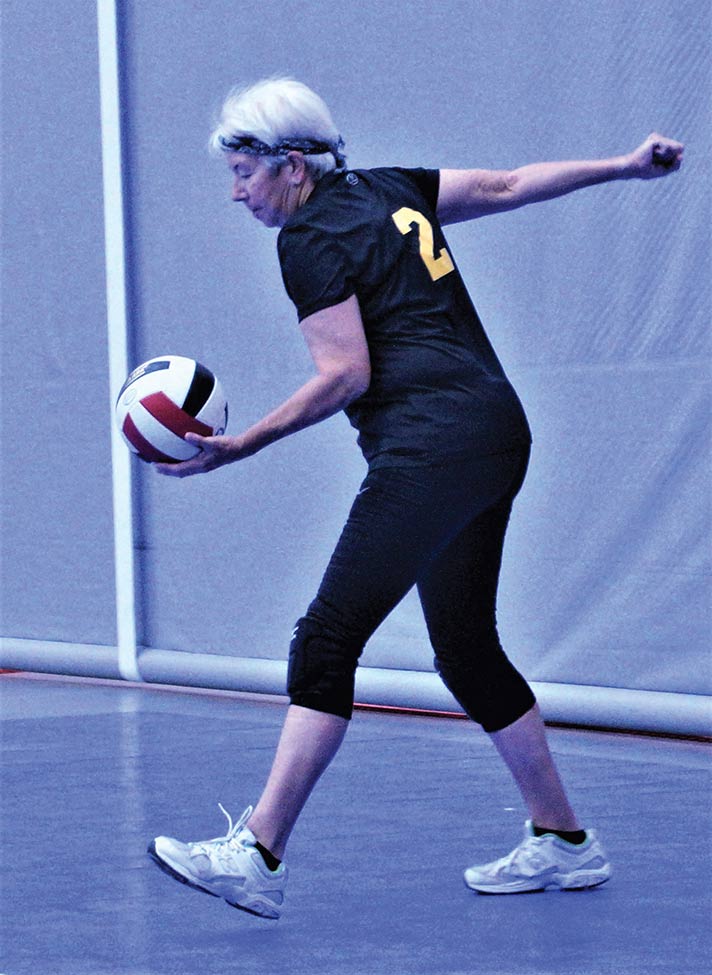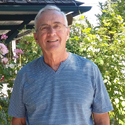Sensational Seniors – November 2020
In 2009, Sue Miler and her, husband, Dave Doi, moved across country from Washington, D.C. to an active retirement life in Jacksonville. Like all featured Sensational Seniors, she has a compelling life story that began on October 27, 1947 in Minneapolis, Minnesota. She was born into a large Catholic family, and the Catholic church was an integral part of her early years. “Growing up I didn’t think our family of eight was unusual as large families were the norm in our neighborhood, and boy was it a diverse neighborhood with a mix of White, Black, Indian and Latino families. While my family survived quite well on my father’s job as a punch press operator in a metal stamping plant, we were surrounded by poverty and all that poverty brings with it.”
Like most children in her neighborhood, Sue attended Catholic schools all the way through to graduation from high school in 1965. While Sue excelled as a student and developed a life-long interest in athletics, she also saw firsthand the results of broken families. “I remember a classmate of mine in the seventh grade who got pregnant and classmates in the fourth and fifth grade who were sent to the reform school for serious crimes. I believe this early exposure to the challenges that people face drove me into my eventual career choices and gave me special empathy for people who struggle under the strain of poverty.”
While Sue’s parents encouraged all their children to go on to college, it also was clear to them that they would have to pay their own way. In Sue’s case, this was a minimum wage job as a file clerk for a law in the law library. In 1965, Sue enrolled at the University of Minnesota as a commuter student. While she enjoyed her classes, one class, “The History of Civil Rights and Civil Liberties,” had a huge impact on her future beliefs about being an American citizen. “Through this class I developed an understanding of the ramifications of slavery in the United States as well as the misguided thinking behind our infamous internment camps during World War II. I also developed a deep appreciation for America’s, sometimes controversial, but so important, Freedom of the Press as embodied in the First Amendment.”
During her junior year of college, Sue took a semester off, borrowed $1,000 from her parents and with a friend spent two and a half months traveling throughout Europe. While she was touring Europe, both Robert Kennedy and Martin Luther King were assassinated. Living these tragedies through the lens of European countries left another lasting impression on Sue…as did the growing controversy surrounding the Vietnam War. “When I came home, I was determined to get involved in the anti-war movement. I was adamant to not be anti-military but believed the U.S. was fighting the war for the wrong reasons. My parents were not happy with me.”
Her early campus activist activities found her in 1969 falling in love with and marrying a fellow anti-war resister and her daughter, Annie, was born. Her husband applied for and got conscientious objector status which required him to do two years of community service. In his case he led an alternative school in Minneapolis for kids who were not making it in the regular school system. Sue became part of a movement to develop alternative institutions and is quick to emphasize, “This was not the stereotype of the dropout hippie movement. It was a group of people who were committed to finding ways to do things differently.” Among other projects, this informal group helped start a food co-op and a childcare co-op so that parents who needed to work could do so without paying. “It was really a simple program. Parents and friends had to commit to working in the childcare co-op for one day a week and the other days they could have their children be there with no cost.”
In 1971, Sue received her BA in American Studies, applied to law school and was accepted with a full ride scholarship. She was one of eight women in the University of Minnesota Law School of 1,200 students. Her law school experience only lasted two weeks. “I got cold feet. My decision was made even easier when the Dean of the law school gave me no encouragement to stay. This was at a time when women lawyers was not common.” She got a job as a paralegal in a small law firm that specialized in representing people with disabilities and in assisting non-profits get legal status. Her paralegal experience proved invaluable as she remembers, “I learned the value of precise writing which was to be a wonderful career skill, and I developed a good understanding and appreciation of non-profits which proved to be equally valuable.”
While working as a paralegal, in 1973, Sue helped found a Minneapolis non-profit, Chrysalis, an organization dedicated to providing multi-services for women, including drug and alcohol counseling, mental health support and legal services. This organization served 12,000 women a year with 50 staff and 400 volunteers. In 1981, she joined the Chrysalis staff as the volunteer coordinator and her career was launched. When a financial crisis caused upheaval at Chrysalis in 1988, Sue was asked to serve as the acting executive director and was forced to lay off about a quarter of the staff including some friends.
In 1972, Sue’s first marriage ended, but she was eventually reunited with a college friend, Dave Doi. They started dating and were married in 1976. Their son, Tom, was born in 1984. The couple left Minneapolis in 1988 when an enticing job opportunity opened up for Dave in Washington, D.C. Sue, unemployed for the first time in years, honed her networking skills which resulted in her being hired at AARP for a demonstration project related to guardianships. The model used was that AARP members would be recruited to monitor the well-being and finances of vulnerable older and disabled people who had been placed under guardianship by probate courts. Sue reminisces, “This job was a good match for my previous experience as a paralegal and my volunteer management at Chrysalis. It was an important service as there had been some horror stories in the press about financial or physical abuse by guardians.”
As with Chrysalis, Sue moved up in management positions with AARP. In 1996, she was selected to head up the National Community Service Programs for the AARP Foundation. This included the popular and familiar programs such as the Driver Safety Program and AARP Tax-Aide, but less well-known ones like the Consumer Fraud Prevention, money management for vulnerable elders and grief and loss services, as well. These programs had offices in 100 locations, over 150 staff and nearly 40,000 active volunteers serving 2.5 million people annually with an annual budget of $100 million. While it is currently popular to be critical of government agencies and employees, Sue had a different perspective. “Our staff and volunteers worked closely with dedicated staff in federal agencies, including the IRS, the Department of Labor, the Social Security Administration, the Department of Justice as well as state attorney generals and other officials. It is sad to see how people working in government are treated today.”
While Sue’s years with AARP were demanding, it only reinforced her appreciation for what well-organized volunteers can accomplish. “The Tax-Aide program alone was run with only ten staff at the national office but with 35,000 amazing volunteers organized in a regional, state, district and community structure. The economic impact of Tax-Aide has been huge.” Living in Washington D.C. was exciting but challenging as well. “On 9-11 I could see the smoke from the Pentagon and the loss and grief of this day was immense. The office staff thought there might be another attack on the Pentagon or the Capitol so there was a lot of fear and concern. We were told to secure some food in our offices, have good walking shoes and be in a state of preparedness. Since both Dave’s and my job required a lot of travel around the United States, getting back on a plane or even the DC Metro after 9-11 was a scary thought.”
Dave retired in 2006 followed by Sue in 2009, but, prior to her retirement, they spent a month exploring the West for a possible place to relocate as both of their children were out west. This trip eventually led them to Ashland. When Sue retired and their D.C. home quickly sold, she made a fast trip back to Ashland, looking for a place to rent, but a realtor suggested looking at Jacksonville, where they moved in fall 2009.
Her retirement has not been one of leisure. Shortly after relocating, she was recruited to serve on the local Senior Disability Services Advisory Board. Then her neighbor encouraged her to join the Jacksonville Garden Club, and she was also asked to be a grant writer for the Jacksonville Community Center building campaign project. Sue was instrumental in securing funds for the remodel of the Community Center cottage and the addition of the new building. She has stayed on with the Community Center organization and currently serves as President of the Board.
Sue Miler has had a lifelong interest in athletics and the outdoors. For decades, she played softball and as an adult took up volleyball, resulting in playing in numerous national tournaments, including the National Senior Games and the Huntsman Games in Utah. Reflecting on Jacksonville she relates, “I never expected to live in a small town, but Jacksonville has been a good place for us. I have met wonderful people and have found that doing community service work here is extremely rewarding.” Her dedication to Jacksonville is an inspiration.

 Mike McClain spent 32 years as a teacher and school administrator, retiring in 1999 as Superintendent of Central Point Schools. He and his wife relocated to Jacksonville four years ago and are enjoying immersing themselves in this unique community.
Mike McClain spent 32 years as a teacher and school administrator, retiring in 1999 as Superintendent of Central Point Schools. He and his wife relocated to Jacksonville four years ago and are enjoying immersing themselves in this unique community.